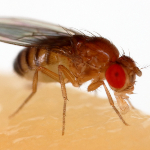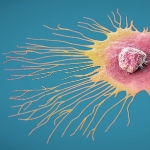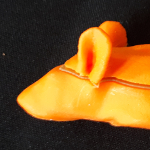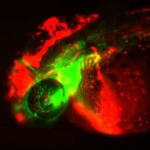Replacement, reduction and refinement case studies
Manchester scientists regularly carry out research aimed at finding ways to avoid the use of animals, decrease their use and minimise their suffering. This is known as the 3Rs: replacement, reduction and refinement. In this section, we take a closer look at some of the work our scientists are doing in this area.
Case studies
Here is a selection of case studies that highlight the University's commitment to the replacement, reduction and refinement of the use of animals in research.
-
Using fruit flies to study heart failure
Our work with fruit flies is helping to establish a method for projects to avoid the use of mice in research.
Read more
-
Unravelling breast cancer metastasis in the lab
Our researchers are promoting a novel cell culture system that provides results similar to mice, allowing scientists to answer questions in more detail, on a larger scale, with fewer animals involved.
Read more
-
Creating a lung in the lab to study fungal infection in cystic fibrosis
Our researchers are using lung cells grown in the lab, reducing the number of animals needed and replacing some animal experiments entirely.
Read more
-
Dummy could transform animal welfare in radiotherapy research
A new device will both increase accuracy markedly and reduce the numbers of animals needed to conduct radiotherapy research.
Read more
-
Making stroke research in animals more ethically sound
A new method of mimicking haemorrhagic strokes in zebrafish embryos is creating a more ethical model for laboratory research.
Read more
-
Human stem cells
Recent research looked at the use of human stem cells as a way to reduce our reliance on animals in research.
Read more
-
Improving methods in visual research
Explore our recent developments in behavioural tests and analysis that may reduce the number of mice needed in visual research.
Read more
-
Using machine learning to reduce animals in research
We have developed a form of machine learning which could dramatically reduce the numbers of animals needed by medical researchers.
Read more








